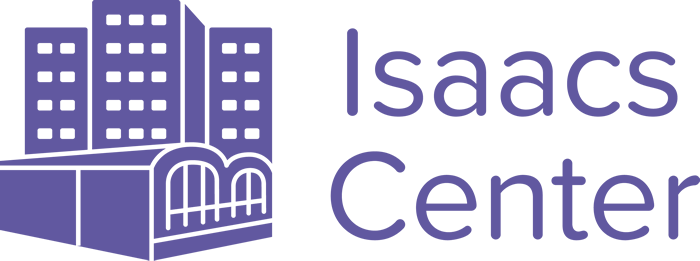Testimony of Stanley M. Isaacs Neighborhood Center
Gregory J. Morris, Executive Director
Oversight Hearing – Senior Center Model Food Budget
February 27, 2019
I’d like to thank Chair Margaret Chin for her leadership and the opportunity to provide testimony. I’m Gregory J. Morris, President and Executive Director of the Stanley M. Isaacs Neighborhood Center, a multi-service non-profit organization embedded within two public housing developments in upper Manhattan.
Isaacs Center provides access to critical programs and social services to residents and community members year-round, through our Senior Center, Naturally Occurring Retirement Community (NORC), and Meals on Wheels program, operating at the Isaacs/Holmes New York City Housing Authority developments in upper Manhattan. As a provider of services to older adults for nearly 60 years, we have a unique understanding of the growing challenges and changing needs of this population, and recognize that older adults living in public housing experience these challenges much more acutely. Those we serve are more vulnerable to falls/accidents, experience ongoing food and financial insecurity, and suffer from higher rates of chronic illnesses.
It is widely known that senior centers and community based organizations embedded within NYCHA developments, like Isaacs Center, are funded approximately at 80 cents for every dollar spent, through their human services contracts. Organizations like ours are routinely forced to make difficult decisions between waiting for government to make necessary investments that directly impact our ability to provide safety net services to our constituency, and allocating dollars from other areas of the organization where we can, thereby negatively impacting our overall fiscal health and sustainability.
While the infusion of $10 million in Model Budget funding into the aging services sector is a promising first step, it does not nearly achieve the Administration’s stated purpose of funds – to “right-size” the operational budgets of senior centers/programs across the City. Notably, the Isaacs Center’s portion of that $10 million was approximately $36,000 for the first fiscal year of the model budget implementation.
As noted in the Council’s Finance Division FY ’19 Preliminary Budget briefing paper(1), “…The Fiscal 2018 Adopted Budget included $10 million to help senior centers better cover costs and begin to standardize funding to ensure adequate and equitable staffing and programming across all providers. The $10 million was viewed as an important first step towards the achieving these important goals, and OMB has expressed that right-sizing is best viewed as a three-year, phased-in project that by full implementation in Fiscal 2021 will rise to a total baselined investment of $20 million…”
We appreciate the Administration’s efforts to now infuse additional funding for food costs that were originally not included, but believe that a projected total baselined investment of $20 million will barely scratch the surface of need throughout the sector. Additionally, given the Department for the Aging’s (DFTA) intention to issue RFPs in the upcoming year for senior centers and home delivered meals contracts, it is imperative that their content aligns with the stated purpose of model budget funding – to “right-size” the system.
Isaacs Center is a pioneer for the City’s Meals on Wheels (MOW) program that provides nutritious meals to over 1,000 homebound seniors every day – many of whom reside in public housing – and is an essential component of assuring food security and health for our most vulnerable. Costs for these programs do not simply include the preparation of the meal itself. MOW programs rely on drivers and deliverers, who are rarely compensated at higher than minimum wage to serve as a lifeline for our homebound elderly. Additional costs include food storage and equipment, as well as trainings and personnel to conduct recruitment and outreach, ensuring that programs are not underutilized by eligible older adults. It is significant to note that the Model Food Budget process did not address several key costs including salaries of kitchen staff, rising food prices, and additional expenses for therapeutic meals aligned with individual medical needs of older adults.
To that end, we offer two key recommendations in this budget cycle.
1. Hold the Administration accountable for staying true to the designated purpose of funds. If the intent of model budget funding is to “right-size” the system, $20 million is simply not enough to cover the meal and social service costs across the sector, in support of high quality services to older adults. Engage and partner with nonprofit leaders to undergo a citywide analysis to determine the true cost of providing meals, as well as comprehensive case management and programming, with the intention of using the analysis to fully fund these services in the FY ’20 Adopted Budget for DFTA.
2. Require DFTA to design their upcoming Home Delivered Meals and Senior Center RFPs such that they both include additional points for those organizations which have significant community experience in the delivery of service to older adults and to those who partner strategically with others to create cost efficiencies in the system.
We look forward to working with Members of the Committee on Aging, as well as leadership at DFTA, to ensure that the sector’s ability to provide quality meals and case management services for our City’s most vulnerable are not compromised in this upcoming fiscal year and beyond. Thank you for the opportunity to provide testimony for the record.
